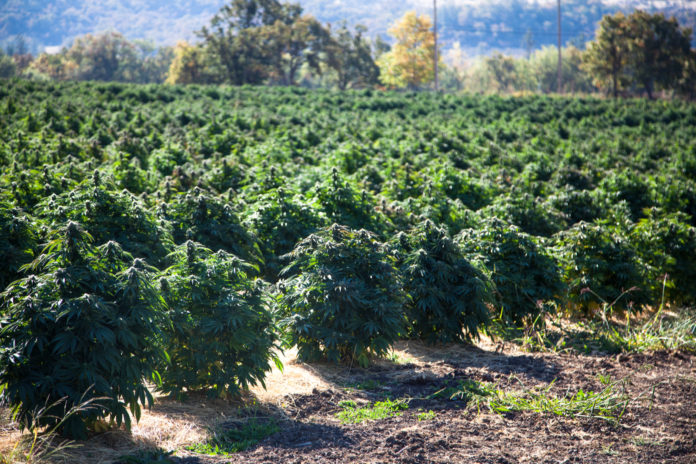SALEM, Ore.- Oregon officials are considering a bill that would drastically change how cannabis businesses operate and could establish a historic new direction for the industry.
A bill to allow the exporting of cannabis across state lines to neighboring states such as Washington and California is being reviewed by state lawmakers. This could potentially be a huge development as no other state permits the export of cannabis.
Oregon growers have produced significantly more cannabis than its residents can consume. In fact, according to Rolling Stone, Oregon growers are currently sitting on more than one million pounds of cannabis. Currently, there is no plan to be able to sell the extra supplies to in-state consumers.
The excess cannabis creates more than just issues with where to store extra flower. The oversupply creates a drop in prices and this hurts growers and shops. It also can drive down revenues taken in by the state since tax rates are a percentage of a product’s overall cost to the consumer.
Democratic Sen. Floyd Prozanski is planning to resubmit aspects of Senate Bill 1042, a bill initially proposed in 2017, which would have allowed the transport transfer of cannabis to states such as Washington and California. All products would be required to meet Oregon’s testing and packaging regulations.
Oregon has a long history of cannabis growing, but unlike other states that discouraged its in-state growers with hefty prices for legal licenses, Oregon officials encouraged its growers to come forward and out of the shadows. The state launched an ad campaign called ‘Go Legal’ which urged current growers, whether they were medical or working without a license to acquire a license.
“When Oregon legalized adult use, we did something very wise, and very Oregonian. We legalized the industry we already had,” Adam Smith, founder, and director of the Cannabis Craft Association told mg. Smith is currently working with state officials to make legal cannabis exports a reality.
Smith stresses that Oregon does not have an oversupply problem, but a market access problem. If cannabis was afforded the same export opportunities as any other industry in Oregon then there would not be enough flower produced by Oregon’s current growers.
If federal regulations were to change, then Oregon may be able to ship cannabis all over the country, ensuring that patients and consumers have access to top quality products. This is how almost every other industry operates in the United States. Are customers best served only having access to oranges grown in Vermont and cheese produced in Florida? Experts should be placed in a position to do what they do best and growers learning on the fly in states that newly legalize may not produce the same quality as those with years of experience.
As we seem to be drifting toward the age of big cannabis, where the price of admission to the legal industry far exceeds what the average grower can afford, Oregon’s approach seems to at least be trying to level the playing field for smaller boutique producers. Growing for quality and purity may not align with the quantity oriented goals of larger cannabis operations but it may be the best way to meet consumer expectations. While some states have lost the valuable insight from experienced small-batch growers, Oregon may find a way to preserve this valuable knowledge.
“After generations of cannabis farming and twenty years of medical, we had thousands of growers, many among the best in the world, who were integral to the economies of some of the poorest parts of the state,” Smith said.
The local economies Smith references may truly need the cannabis industry. These communities can no longer rely as heavily on commercial logging as they used to. The culture of cannabis is cited constantly in the industry, but often as a mere self-promotional tool. Exactly what culture will there be to preserve if the pioneers of the modern cannabis reform movement are barred from seeing the fruits of their labor?












